Success Stories
The National Veterans Legal Services Program (NVLSP) is proud to share the stories of the veterans whose lives have been profoundly impacted through our work.
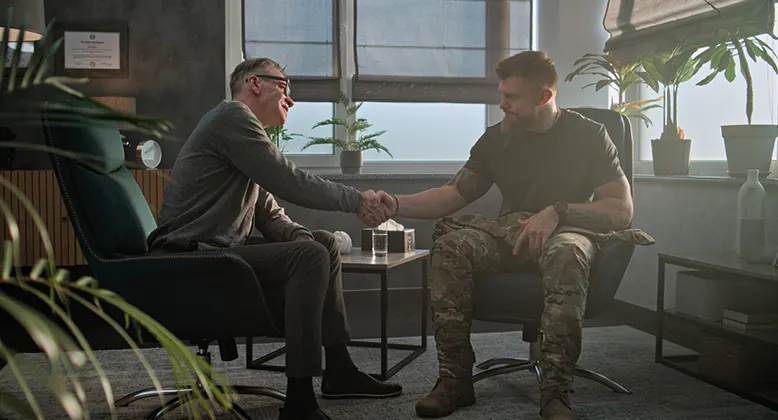
Each story reflects a journey of perseverance and the unwavering commitment to ensuring that those who served our country receive the justice and benefits they rightfully deserve. These accounts highlight the transformative impact of NVLSP’s legal work and the persistence and resilience of the veterans, service members, and their families that we represent.
NVLSP uses its expertise in veterans law to improve the lives of veterans and their families. NVLSP provides legal services at no cost to veterans, service members, and their families to secure disability benefits from the Department of Veterans Affairs and the United States Armed Forces. NVLSP brings class actions to correct systemic barriers to justice for veterans. NVLSP also represents individual veterans in appeals in the U.S. Court of Appeals for Veterans Claims (CAVC). NVLSP’s pro bono program, Lawyers Serving Warriors®, offers veterans and service members free legal assistance through a national network of volunteer attorneys from private law firms and corporate legal departments. Through its Training and Publications program, NVLSP educates attorneys and veterans advocates to create a network that assists veterans and their families.
Below are some examples of the impact of NVLSP’s life-changing work.
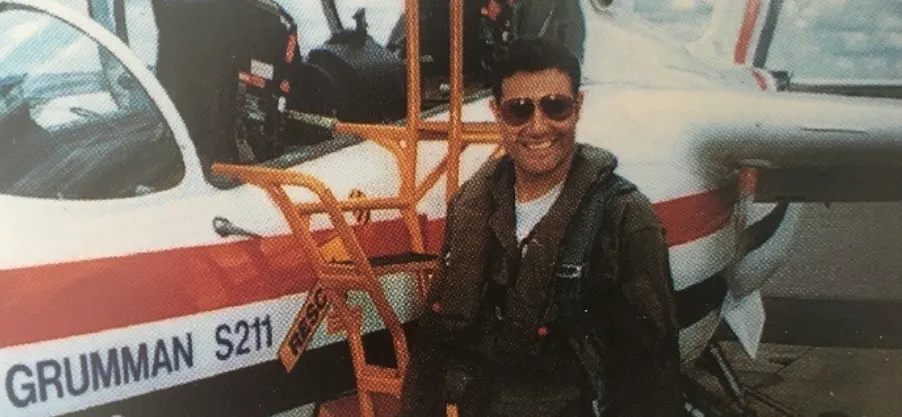
Joe T.
Joe T., a veteran of the Marine Corps from 1977 to 1986 and the Coast Guard from 1987 to 1996, devoted over a decade to serving his country. During his military career, he was exposed to various toxic substances. After his service, he developed a serious health condition that he believed was linked to these exposures. However, when he initially filed for benefits, the VA denied his claim, stating there wasn’t enough evidence to connect his condition to his time in the military, despite acknowledging his exposure.
Joe submitted additional medical reports, but the VA still rejected his claim. That’s when NVLSP stepped in. When the VA continued to deny his claim after a higher-level review, NVLSP filed an appeal with the Board of Veterans’ Appeals. Ultimately, the Board granted Joe’s claim, awarding him a 100% disability rating, reflecting the impact his condition had on his life.
“The speed at which this was done was quite frankly, amazing,” Joe said. With this decision, Joe is now eligible for additional benefits, recognizing his service and sacrifice.
“Without NVLSP, we would be stuck… Your team was able to point out to the reviewers what to review,” Joe added, highlighting NVLSP’s critical role in securing his benefits.
Ms. G.
Fresh out of basic training, Cary G. devoted 20 years to the Navy during the Vietnam era. Ms. G. filed a claim for Dependency and Indemnity Compensation (DIC) seeking service connection for the cause of her spouse’s death, but the VA denied it, citing insufficient evidence to link his death to his service. Determined, Ms. G. appealed. NVLSP took the case to the Court and negotiated an agreement to send the case back to the Board of Veterans’ Appeals for a new decision. At that point, pro bono attorneys from Steptoe & Johnson joined the fight and compiled an extensive brief with hundreds of pages of supporting documentation.
In May 2024, the Board granted service connections for Cary’s cause of death. This win entitles Ms. G. to ongoing monthly benefit payments for the rest of her life.
When asked to discuss the impact of this victory, Ms. G. expressed relief and gratitude, stating, “I am a 76-year-old woman that needed to go back to work after my husband died. I was 69 at his death, but could not afford to live on my social security only.” With the favorable decision, Ms. G. was finally able to retire this summer. She added, “I went through many avenues, but it was NVLSP that was able to get this done.”
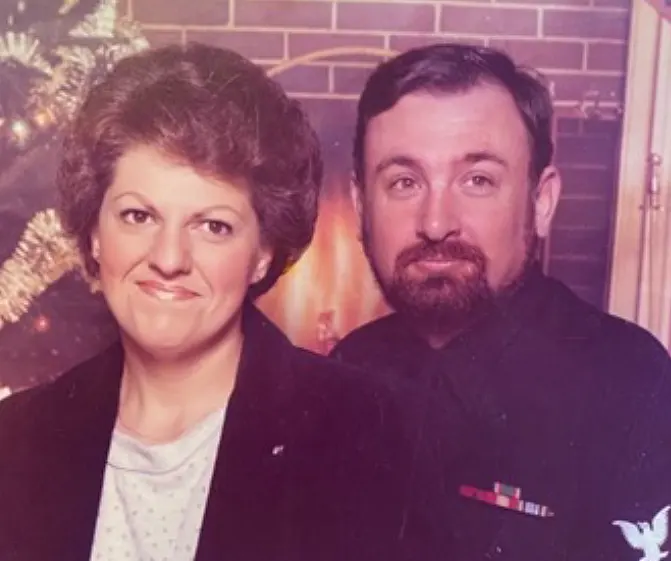
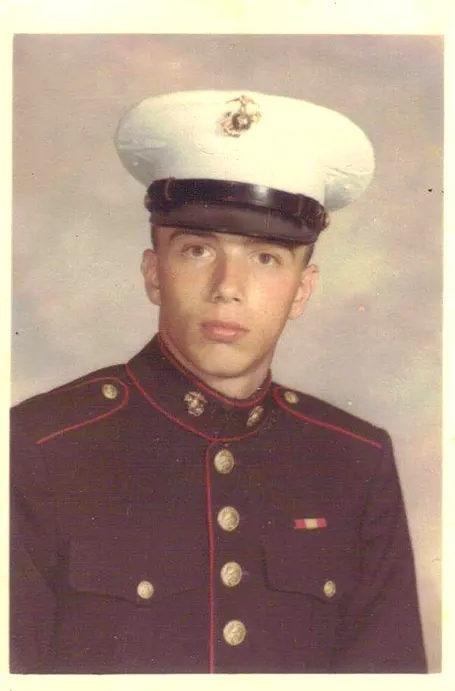
Frank C.
Frank C. served in the Marines as a helicopter pilot. He voluntarily enlisted and was sent to Vietnam in the mid-1960s, where he was heavily involved in combat. Upon returning stateside, he began exhibiting PTSD symptoms and developed a substance abuse problem. Mr. C. frequently sought help from his command and from Navy medicine but to no avail.
He was separated in 1972 with an “Undesirable” discharge. Following his discharge, Mr. C. received his 4-year degree and worked steadily. He has remained sober since 1977. In the 1970s, he received a pardon as part of the Presidential Clemency program, but was still ineligible for VA benefits. He applied to the Navy Discharge Review Board in the 1980s with no success.
Mr. C. contacted NVLSP for assistance. Through NVLSP’s pro bono program, Lawyers Serving Warriors® (LSW), Mr. C. case was represented by volunteer attorneys at Raytheon and DLA Piper. They worked tirelessly to achieve a discharge upgrade to fully Honorable and a narrative reason for separation change to “Secretarial Authority” from the Board for Correction of Naval Records for Mr. C.. Today, Mr. C. continues to struggle with PTSD. With his upgrade to a fully honorable discharge, he now has access to treatment. Equally important, Mr. C. pride in himself and his years of service has been restored. Upon receiving his Honorable Discharge certificate, Mr. C. looked forward to joining fellow veterans for the Veteran’s Day parade in his hometown.
Christopher G.
Sgt. Maj. G. served honorably in the Marine Corps from 1975 to 2005. He served in numerous locations, including the Philippines, Japan, Korea, Iceland, Lebanon, and Iraq, and he participated in several operations, including evacuation and security operations in Lebanon, as well as Operation Southern Watch, Operation Enduring Freedom, Operation Iraqi Freedom, and Operation Iraqi Freedom II in Iraq. Sgt. Maj. G. was the recipient of many awards and commendations, including the Combat Action Ribbon and the Legion of Merit. Over the course of his distinguished career, the veteran sustained combat-related injuries while serving in war zones and training for combat operations.
Mr. G. contacted NVLSP for assistance with applying for Combat-Related Special Compensation (CRSC). Through NVLSP’s pro bono program, Lawyers Serving Warriors® (LSW), Mr. G. was represented by volunteer attorneys at Covington & Burling. They combed through his medical records and identified those disabilities that were caused by combat-related events. They filed an initial application for CRSC, and Mr. G. was awarded CRSC for his Post-Traumatic Stress Disorder, a neck condition and tinnitus but denied for other conditions. The volunteers continued their representation with a request for reconsideration, and Sgt. Maj. G. was then awarded CRSC for spine, ankle, shoulder, knee and elbow conditions, with a combined combat-related disability rating of 80%.

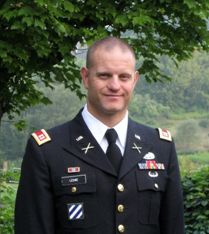
Joshua L.
Army Lieutenant Colonel Joshua L. fulfilled a long family legacy of service when he was commissioned into the army in 2006 from the U.S. Military Academy at West Point. During his deployment to Afghanistan in 2011, his vehicle was struck by an improved explosive device (IED) while patrolling a dangerous route. The explosion left Joshua with many severe injuries, including fractures to his spine, ankles, and thumb, in addition to a traumatic brain injury.
After a long recovery and rehabilitation alongside his wife and primary caregiver, Joshua applied for benefits through the Servicemembers’ Group Life Insurance Traumatic Injury Protection (TSGLI) program. TSGLI is a traumatic injury insurance benefit jointly run by the VA and military service branches. However, the Army denied his claim and issued a vague letter that did not address the evidence he provided.
Joshua turned to NVLSP for assistance. Through NVLSP’s TSGLI program, Joshua was represented by volunteer attorneys at WilmerHale. The Board reversed their decision after NVLSP filed an appeal and he was awarded the full TSGLI benefits he rightfully deserved. This decision provided not only financial relief but also a sense of closure for Joshua and his family.
“When it was awarded it felt like a wrong has been righted for us,” Joshua said. “The decision helped us get a kind of closure that we didn’t get when I left the War Transition Unit and went back to active duty.”
